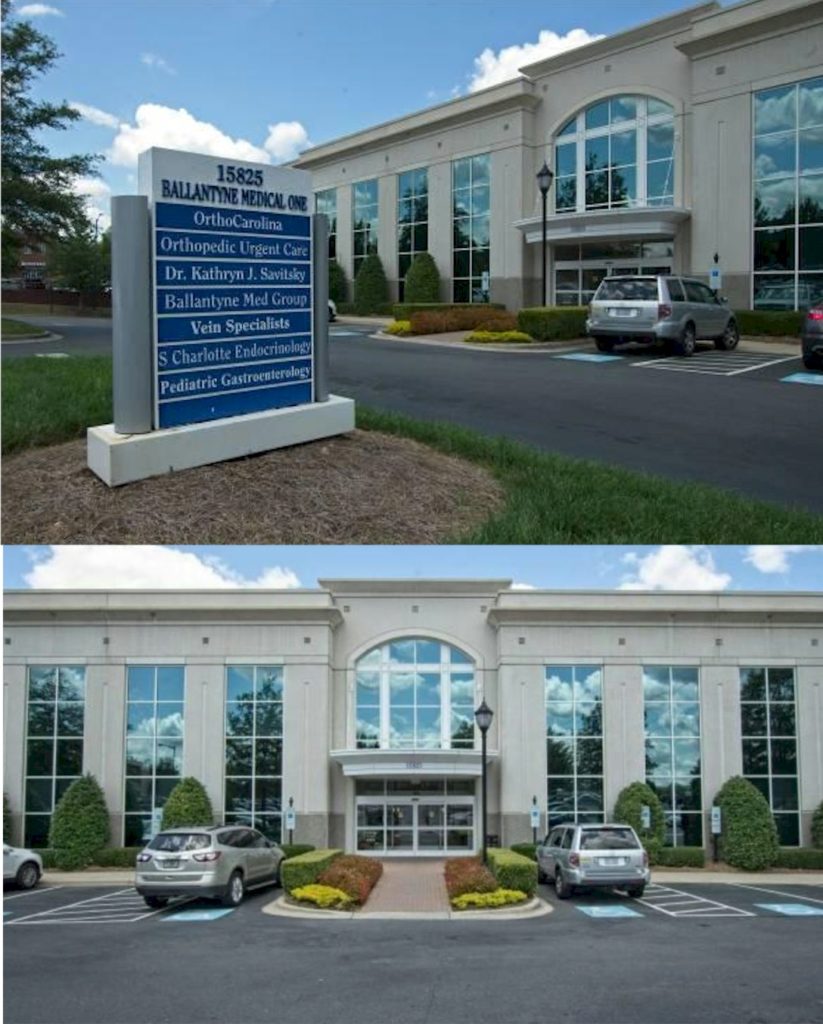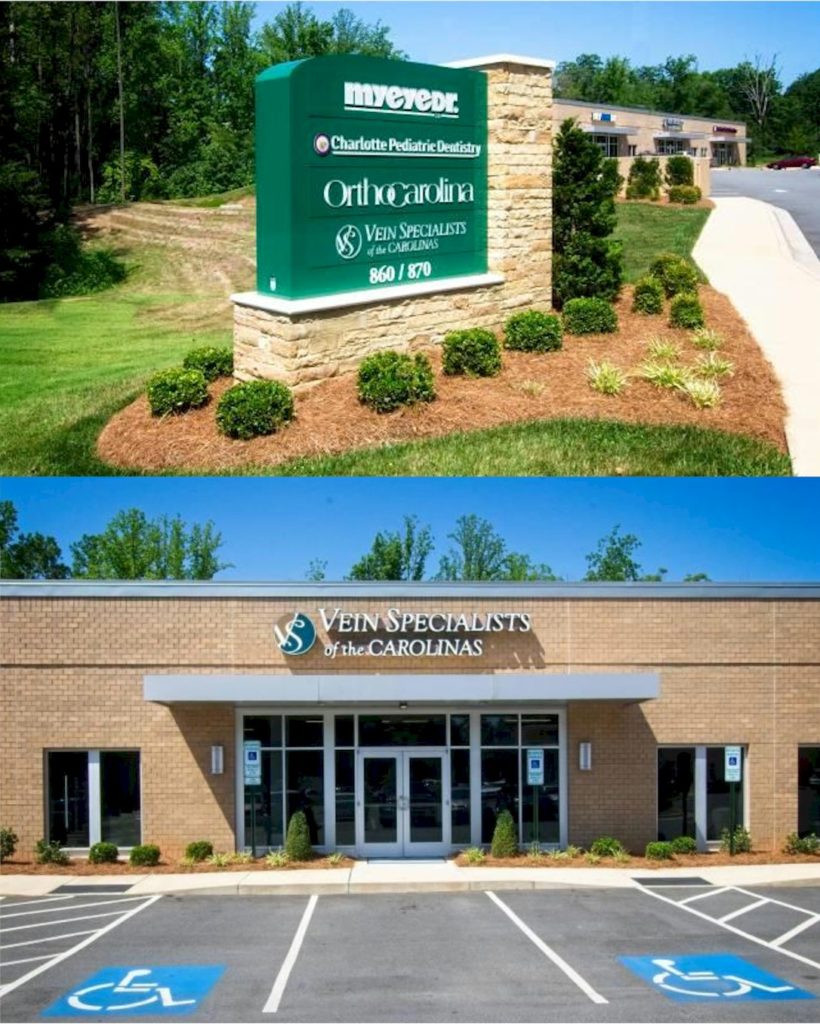Pelvic Congestion Syndrome
Vein Specialists of the Carolinas
“All We Do Is Veins, All Day Every Day.”
What Is Pelvic Congestion Syndrome?
Pelvic Congestion Syndrome (PCS) Symptoms
- Usually described as heaviness, fullness, or bloating with aching or throbbing.
- Usually relieved with lying down, and can be worse with standing and sitting.
- It is worse during menstrual times but also occurs outside of that time.
- Intercourse can be painful. Aching and pain after intercourse or upon standing after intercourse are also clues to this condition.
- The urge to urinate can be a symptom of PCS. Often patients may be seen by the Urologist and told there is interstitial cystitis. Cystoscopy is usually negative.
- Rectal fullness or the urge to have a bowel movement. GI doctors are frequently consulted and may diagnose the problem as diverticulosis or irritable bowel syndrome. Colonoscopy is often negative.
- Sometimes hemorrhoids (which are varicose veins of the rectum) are present. Having a Hemorrhoidectomy doesn’t help the pelvic pain.
- Gynecologists may have labeled the symptoms as due to endometriosis or adhesions.
External Signs That Raise Suspicion Of Pelvic Congestion Syndrome (PCS)
- Varicose veins of the lower abdomen.
- Varicose veins of the area above the pubic bone.
- Varicose veins on the labia.
- Varicose veins in the inner upper most thighs.
- Varicose veins under the buttock.
Diagnosing Pelvic Congestion Syndrome (PCS)
- Routine abdominal and pelvic ultrasounds do not investigate the veins to the required degree.
- Transvaginal ultrasound may show the pelvic varicose veins. Most Gynecologists are more focused on the ovaries and uterus.
- Laparoscopy may be negative. The pelvis is elevated to allow the intestines to come out of the pelvis so the varicose veins are also emptied and not seen.
- A hysterectomy removes the uterus and during the procedure many veins will be ligated. This can be an effective treatment.
- Transabdominal ultrasound in the hands of an Experienced Vein Specialist can show the varicose veins, the kidney vein, the ovarian vein and the leg vein.
- CT scan or MRI can also show the varicose veins, but is not usually designed to show the other veins.
- A venogram ( filling the veins with x ray dye) of the kidney veins, ovarian veins and leg veins is required to get the most accurate information.
Causes of Pelvic Congestion Syndrome (PCS)
- Ovarian vein reflux or reverse flow when one way valves no longer function and blood flows backwards into the pelvis.
- Blockage of the leg veins (May-Thurner Syndrome) can result in pelvic problems with or without leg problems. This happens because the veins of the bladder, uterus, vagina, and rectum all join together and then join into the leg veins
- The left kidney vein is blocked This is because the left ovarian vein drains into the left kidney vein. The blood flow is diverted into other veins, most commonly the ovarian vein. This damages the ovarian vein valves and makes varicose veins in the pelvis. This kidney vein blockage can also cause left flank pain or blood or protein in the urine( Nutcracker Syndrome).
Treating Pelvic Congestion Syndrome (PCS)
- If the ovary veins are refluxing, then they are closed down with coils and a medication that seals them.
- If the leg vein is blocked it is opened up with a stent. Intravenous ultrasound is used to get the most accurate measurements to put in the right size stent.
- If the kidney vein is blocked, stenting or open surgery may be required.
- A new medication called Vasculera is now under trials to see if it will relieve symptoms enough to postpone or avoid surgery.
From The Blog
Empowering Women’s Health: Conquering May Thurner Syndrome
In the intricate landscape of women's health, there exists a condition often overlooked and misunderstood: May Thurner Syndrome. This syndrome, also known as pelvic congestion syndrome, manifests as unexplained pelvic pain and discomfort, often misattributed to other...
Pelvic Congestion Syndrome (PCS): Shedding Light on a Misunderstood Condition
Pelvic Congestion Syndrome (PCS) often lurks in the shadows of medical awareness, yet for those who suffer from it, its impact can be profound. This often-underdiagnosed condition occurs when varicose veins develop in the pelvic region, leading to chronic pelvic pain...
Unveiling Vein Disorders: Recognizing Symptoms and Seeking Solutions
Vein disorders can manifest in various forms, affecting the circulatory system and potentially leading to a range of conditions. At Vein Specialists of the Carolinas, our dedicated team is committed to educating the community about these disorders, including...
CHARLOTTE, NC
Phone
Hours
Mon.-Thurs.: 7:30am - 4:30pm
Friday: 7:30am-12:30pm
Address
15825 Ballantyne Medical Place,
Ste. 240
Charlotte, North Carolina 28277
GASTONIA, NC
Phone
Hours
Mon.-Thurs.: 7:30am - 4:30pm
Friday: 7:30am-12:30pm
Address
860 Summit Crossing Place,
Ste. 120
Gastonia, North Carolina 28054







